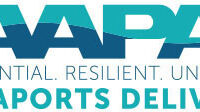GUEST VIEWPOINT: Financing Port Projects: Strategies in the Current Landscape
 Capital investment in port infrastructure is essential, but to ensure long-term financial sustainability it is also important to consider cost-effective financing of strategic infrastructure, resiliency planning and revenue enhancing projects.
Capital investment in port infrastructure is essential, but to ensure long-term financial sustainability it is also important to consider cost-effective financing of strategic infrastructure, resiliency planning and revenue enhancing projects.
* By Christine Choi, Director, PFM Financial Advisors LLC *
Capital investment in port infrastructure is essential to improve efficiency, remain competitive, and attract business. Container shipping industry consolidation has reduced pricing leverage and the impact of higher tariffs suggests deceleration of volume growth. With the potential for diminished revenue growth, cost-effective financing of strategic infrastructure, resiliency planning and revenue enhancing projects is important for long-term financial sustainability.
While underlying economic conditions in the U.S. remain favorable, a combination of uncertainties – U.S. politics, the ongoing trade war with China, a wavering U.S. central bank, slowing global growth, failing Brexit implementation – have resulted in a significant stock market correction, surging credit spreads and a partial yield curve inversion. This has resulted in significant day-to-day volatility in the bond markets as the threat of a recession lingers. Despite the near-term uncertainty and volatility, long-term tax-exempt municipal borrowing rates remain attractive with the 30-year AAA Municipal Market Data (MMD) yield at 2.45% as of May 7, 2019.
Tax-exempt financing continues to be an attractive financing alternative for ports. Municipal bonds provide the opportunity to leverage revenue streams to finance projects and repay the borrowing amount over a fixed period of time. Bonds may be issued with a short term or a long term and at variable interest rates reset periodically or at fixed rates in order to meet the unique objectives of the project and the port. Generally, financing may be secured via a public sale in the markets, a private placement with a bank or the Transportation Infrastructure Finance and Innovation Act (TIFIA) program. The TIFIA program provides credit assistance for qualified projects of regional and national significance. This program provides low-cost and flexible repayment borrowing. However, the TIFIA process is typically more onerous and time-consuming than a traditional bond issuance.




